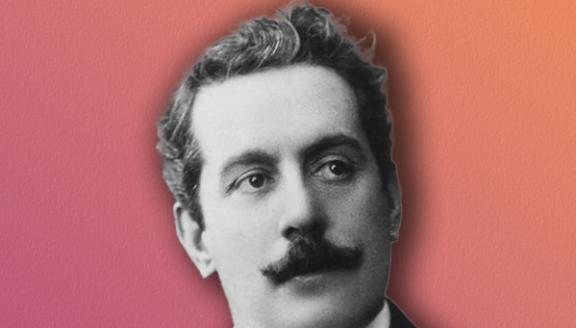Two comic operas. In one, a clockmaker’s wife takes advantage of her husband’s absence to let in her lovers. In the other, a seemingly devout family discovers that they have been disinherited; the moral façade collapses and now it is just about the money. All this could be the stuff of tragedy - marital woes and a family torn apart over an inheritance - but Ravel and Puccini highlight the comedy, and therein lies the full force of these early 20th century jewels.
Palau de les Arts’s new production of this double bill is directed by the Belgian/French duo of Moshe Leiser and Patrice Caurier. Since their debut at Covent Garden in 2001, they have been in demand across the world. Their work is acclaimed for its contemporary approach, bringing opera close to the audiences of today without degrading the original dramatic elements. The fine cast in Valencia, conducted by Michele Spotti, includes singers such as the Italian baritone Ambrogio Maestri, the Valencian soprano Marina Monzó, the Peruvian tenor Iván Ayón-Rivas, and the Franco-Swiss mezzo-soprano Eve-Maud Hubeaux singing alongside emerging talents from Centre de Perfeccionament Palau de Les Arts (Palau de les Arts’ Opera Studio).
CAST
|
Orchestra
|
Orquestra de la Comunitat Valenciana
|
|---|---|
| ... | |
|
Director
|
Moshe Leiser
Patrice Caurier
|
|---|---|
|
Conductor
|
Michele Spotti
|
|
Set designer
|
Alain Lagarde
|
|
Costumes
|
Agostino Cavalca
|
|
Light designer
|
Christophe Forey
|
| ... | |
L'heure espagnole
|
Concepción
|
Eve-Maud Hubeaux
|
|---|---|
|
Gonzalve
|
Iván Ayón Rivas
|
|
Torquemada
|
Mikeldi Atxalandabaso
|
|
Ramiro
|
Armando Noguera
|
|
Don Íñigo de Gómez
|
Manuel Fuentes
|
| ... | |
|
Music
|
Maurice Ravel
|
|---|---|
|
Text
|
Franc-Nohain
|
| ... | |
Gianni Schicchi
|
Gianni Schicchi
|
Ambrogio Maestri
|
|---|---|
|
Lauretta
|
Marina Monzó
|
|
Zita
|
Elena Zilio
|
|
Rinuccio
|
Iván Ayón Rivas
|
|
Gherardo
|
Mikeldi Atxalandabaso
|
|
Nella
|
Holly Brown
|
|
Gherardino
|
Damián Augusto Fernández
|
|
Betto di Signa
|
Manuel Fuentes
|
|
Simone
|
Giacomo Prestia
|
|
Marco
|
Bryan Sala
|
|
La Ciesca
|
Laura Fleur
|
|
Maestro Spinelloccio
|
Tomeu Bibiloni
|
|
Ser Amantio di Nicolao
|
Daniel Gallegos
|
|
Pinellino
|
Irakli Pkhaladze
|
|
Guccio
|
Javier Agudo
|
| ... | |
|
Music
|
Giacomo Puccini
|
|---|---|
|
Text
|
Giovacchino Forzano
|
| ... | |
VIDEOS
STORY
L’heure espagnole
Toledo. The muleteer Ramiro goes to the watchmaker Torquemada's workshop to have his watch repaired. Torquemada's wife Concepción tells him that the time has come to go and check the city's clocks. The watchmaker suggests that Ramiro wait for him until he returns. This upsets Concepción's plans, as she is expecting a visit from her lover, Gonzalve. However, the cunning Concepción takes advantage of Ramiro's presence and asks him to take up a clock to her room, in which Gonzalve has previously hidden himself. The same situation is repeated with the next lover to appear shortly after, Iñigo. Concepción, fascinated by how Ramiro effortlessly carries the clocks with the lovers inside, invites him to her room. Torquemada returns to the workshop. When he surprises Iñigo and Gonzalve coming out of their respective clocks, he mistakes them for customers who were waiting for him and manages to sell them both clocks.
Gianni Schicchi
Florence. The relatives of the wealthy Buoso Donati gather after his death to share out his fortune. Rumour that the deceased has bequeathed his goods to a monastery incites them to hastily search for the will. Rinuccio, the nephew of Zita, Buoso's cousin, hopes to inherit enough to be able to marry Lauretta, daughter of Gianni Schicchi, a country bumpkin and outsider who has been rejected by the young man's family. Rinuccio defends his future father-in-law, praising his cunning and knowledge of the law and its loopholes. They finally find the will. It confirms that Buoso has left everything to the monastery. To the despair of the relatives, Gianni Schicchi proposes that he should impersonate a dying Buoso and dictate a new will before a notary. Schicchi's plan is a success, especially for him, as he secures the greater part of the inheritance, ensuring a dowry for Lauretta and provoking the indignation of Buoso's family. Schicchi, addressing the audience, asks if Buoso's wealth could have been better distributed and confesses that he has been condemned to hell for his audacity.



